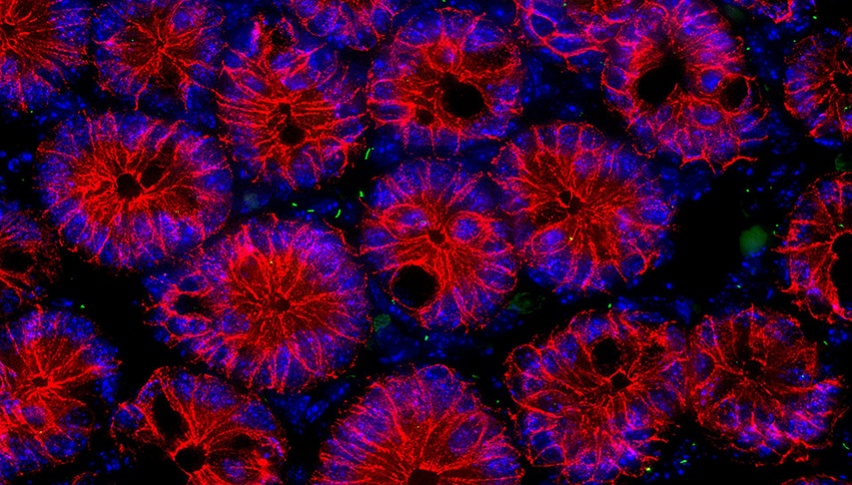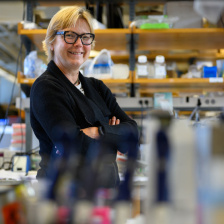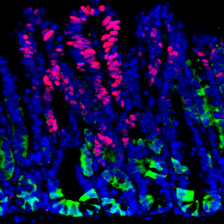
Antenna-like primary cilia can act like the cell's signaling center, governing basic cellular processes during development and in adult tissues. These same cellular processes are known to be poorly regulated in epithelial tumors, but the primary cilium’s functions during cancer progression are poorly understood. This image shows a difference between mesenchymal cells (green ciliated cells) over epithelial cells (red) in their ability to generate primary cilia, as illustrated in the mouse intestinal epithelium. Credit: Vincent Guen (2016 Image Awards submission)
From head to toe, in every corner of our bodies, stem cells work to keep our tissues and organs in good repair and working as they should. Unfortunately, they provide similar service to tumors. Cancer stem cells are able to create tumors and resist chemotherapy. They are thought to be responsible for tumor recurrence after remission and for the formation of metastases, which account for most cancer deaths. Yet, we don’t know nearly as much as we need to about these small and relatively rare populations of cells.
The MIT Stem Cell Initiative studies fundamental biological questions about both normal adult stem cells and cancer stem cells. The group seeks to identify the stem cells and cancer stem cells for different organs, establish the biological characteristics and gene regulatory programs essential for their “stemness,” and understand similarities and differences in stemness programs across different organs. The MIT Stem Cell Initiative also supports the development and application of methods and techniques for understanding these cells.
Learning more about normal and cancer stem cells offers opportunities to significantly improve human health, from using normal stem cells to repair damaged tissues, to targeting and killing cancer stem cells as a way to suppress tumor recurrence and metastatic disease.



